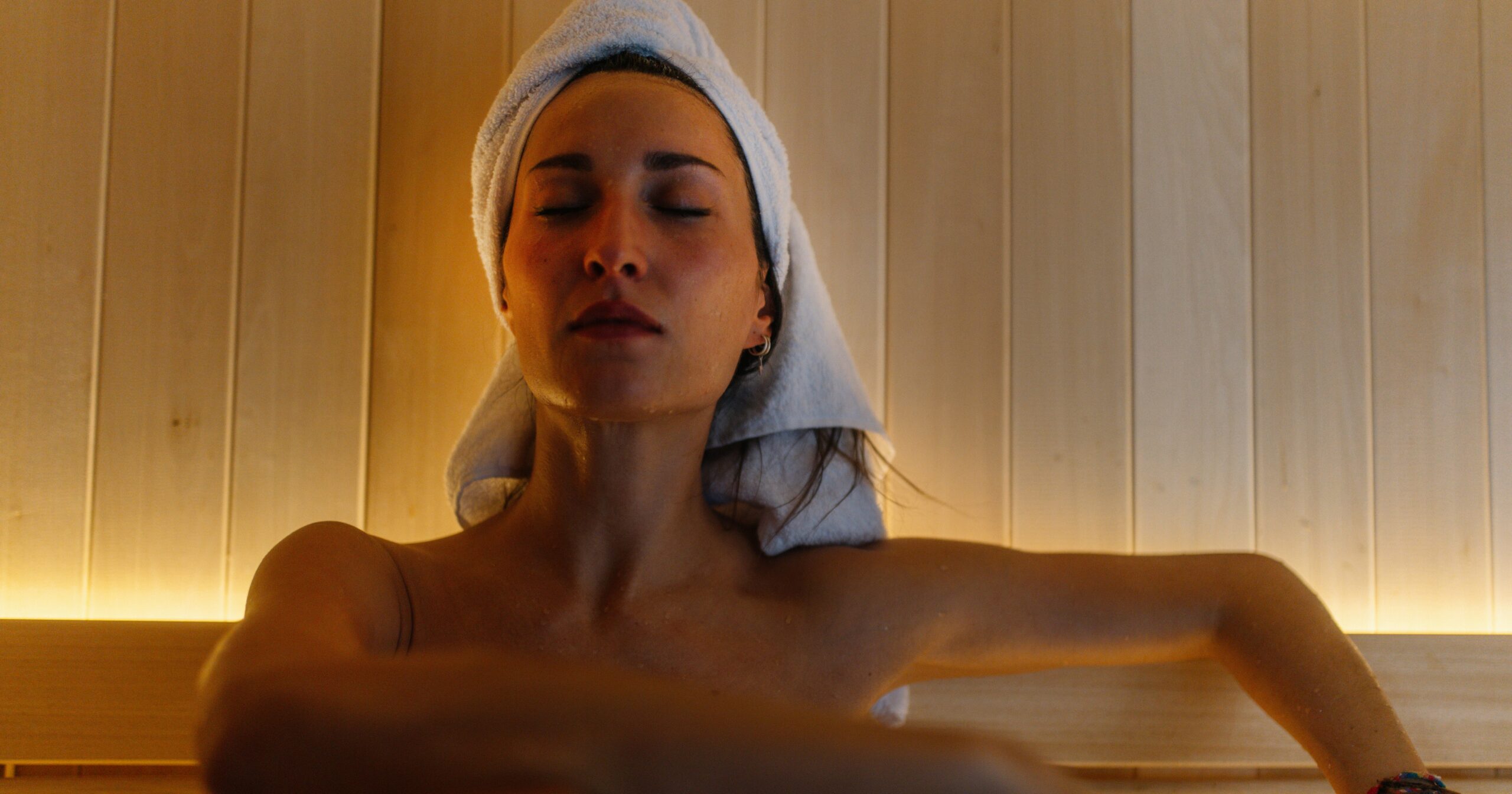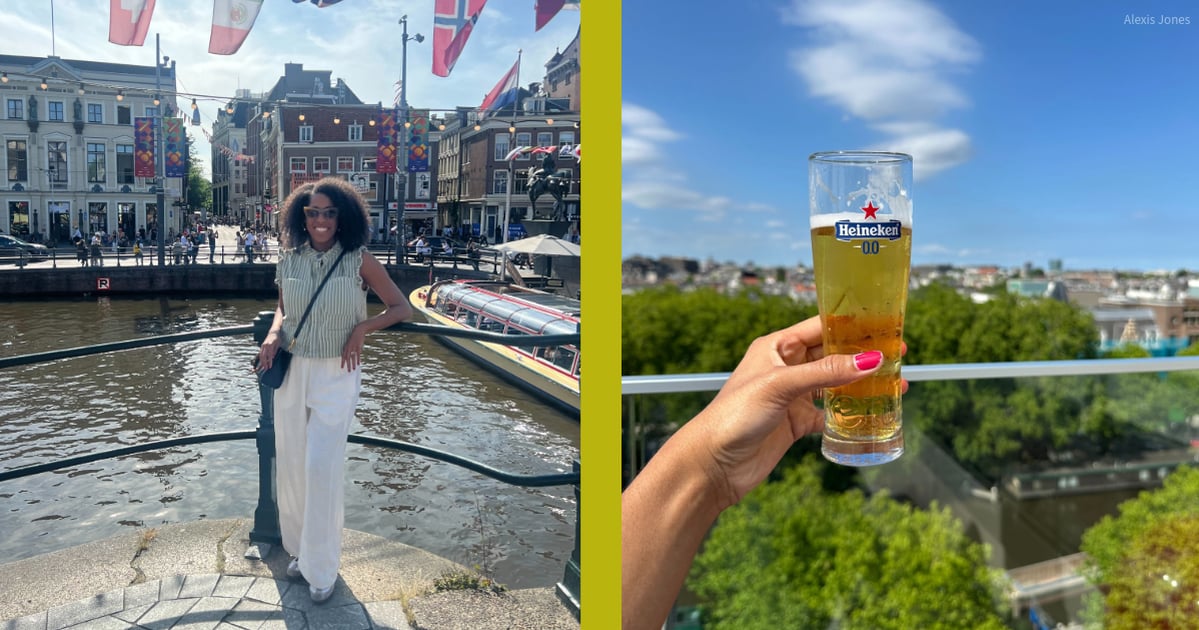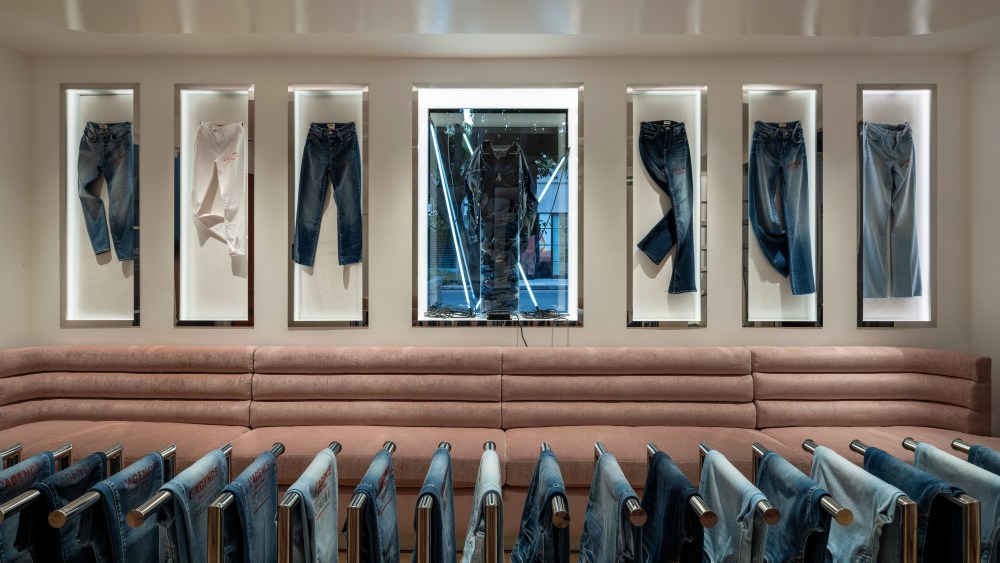Infrared saunas are one of the hottest (no pun intended) trends in wellness and beauty right now. Whether you’re hopping into a traditional infrared sauna at your gym or using an infrared blanket at home (or you’re one of those people who splurged on an at-home sauna), the benefits can be pretty apparent after just one use. We’re talking full-body, inside and out benefits, from blood circulation and muscle recovery to rejuvenated and glowing skin.
But of course, all trends have their nay-sayers, and some people are hesitant to jump aboard the sauna train. Why? Well, with infrared saunas, you’re met with heat and sweat – two components that may not work well with many skin conditions, such as rosacea, melasma, and acne.
So, should you avoid the sauna if you have rosacea or other sensitive skin conditions? We spoke with a dermatologist to learn more about infrared saunas and their effects on the skin.
What Is an Infrared Sauna?
Infrared saunas use electromagnetic radiation from lamps to directly heat your body. “Normal steam or hot rock saunas heat the air, where the infrared sauna heats the body directly,” Richelle Oslinker of Higher Dose previously told PS. “As a result of this, infrared heats human tissue directly, rather than just the surface of the skin. This makes infrared seven times more effective at detoxifying the body than a traditional sauna.” You’ll find that the temperature of infrared saunas goes anywhere from 120°F to 140°F, per Healthline.
The results of using an infrared sauna are similar to those you experience after a light workout: sweating and an increased heart rate, according to Mayo Clinic. While this is the same result you may experience in a normal sauna, an infrared sauna works at lower temperatures – perfect for those who don’t necessarily enjoy the heat but love the health benefits of the infrared sauna.
Saunas can help rejuvenate your skin by increasing blood flow and circulating oxygen and nutrients throughout your capillaries and blood vessels, which helps you achieve a nice all-over skin glow, board-certified dermatologist Nazanin Saedi, MD, tells PS. You may also notice your skin looking clearer and tighter as you continue to use infrared saunas.
Skin Conditions That Should Avoid Infrared Saunas
Despite the many health benefits of infrared saunas, they’re not for everyone. Specifically, there are a few skin conditions where infrared saunas may worsen side effects or cause flare-ups. Those being:
Acne Prone Skin: While a hot sauna can be relaxing, Dr. Saedi says it’s important to remember that it will also induce sweating. “Those with acne-prone skin should be sure to shower after sitting in a sauna. Sweat mixed with oils and bacteria on the skin can clog pores and lead to acne.”
Melasma: “If you struggle with melasma, heat may cause hyperpigmentation by triggering the epidermis to produce more melanin,” Dr. Saedi says. “In this case, it’s best to skip activities such as saunas, hot tubs, hot showers, and even hot yoga.”
Rosacea: Exposure to high heat can cause vasodilation, which is the dilation of the blood vessels. “When the tiny blood vessels in the face, known as capillaries, narrow and widen, they may break down or tear,” Dr. Saedi says. “These are known as broken capillaries, or spider veins, which appear as small, thin, thread-like redness and are often found on the cheeks and nose.”
Those with rosacea are more prone to forming tiny broken capillaries, and the vasodilation that occurs from exposure to high heat is a trigger. “Trauma, sun damage, spicy food, windburn, smoking, frequently blowing your nose, and extreme temperature changes are some of the most common triggers,” Dr. Saedi says. “Broken capillaries can only be cleared with the help of in-office laser treatments, so we advise patients who are prone to this to stay away from common triggers.”
But that’s not to say that inferred saunas are bad for all skin conditions. Since saunas can be extremely relaxing and stress-reducing, in some cases, taking regular trips to the sauna or using an infrared sauna blanket may help improve your skin and diminish the side effects of some skin conditions or concerns. “Inflammatory conditions such as psoriasis and hair loss can benefit from a reduction of stress hormones,” Dr. Saedi says.
Whether or not using a sauna is right for you depends entirely on your skin and your unique condition. If you’re uncertain about anything, it’s best to consult with a doctor.
Sydney Wingfield has been a freelance writer in the beauty and wellness space for six years. She has written for Women’s Health, Marie Claire, Glamour, and other publications and loves to cover all things skin care, makeup, and hair.




